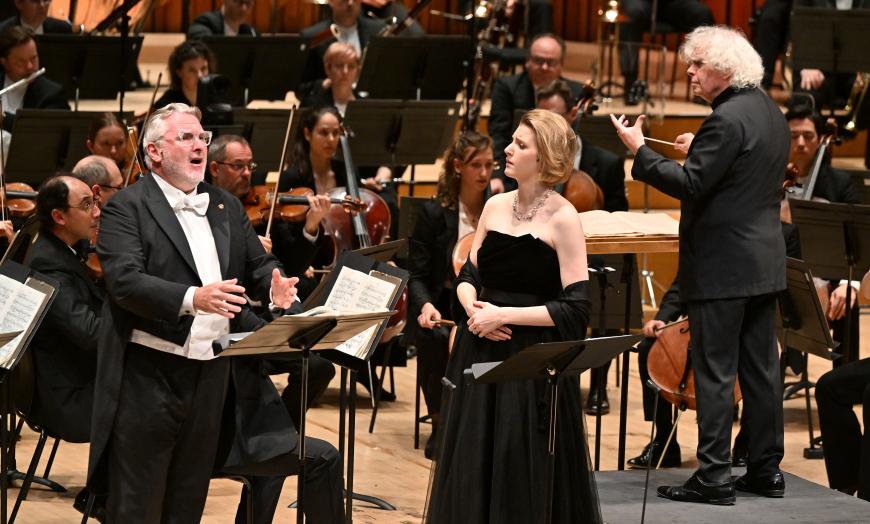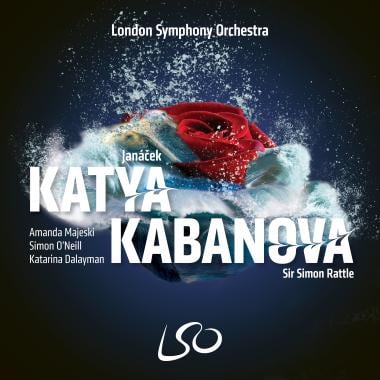
Almost no one can find their way out in Leoš Janáček’s great opera Katya Kabanova. Nor can the opera’s characters find private space as they are pushed to the edge by forces they are unable to control. Katya Kabanova may have been composed in 1920 and 1921 (and revised in 1927, the year before Janáček’s death), but its themes remain as vital today as they were in 1859, when Aleksandr Ostrovsky wrote the play The Thunderstorm, upon which Janáček based his opera. Science versus religion, familial loyalties versus the cries of the heart, guilt and sin by the bucketful — it’s all in there.
Janáček wasted not a note nor word in his compact three-act structure. The urgency and passion with which he imbued the story and score stemmed partly from his obsession with a far younger married woman, Kamila Stösslová. Unable to consummate his unrequited passion — Stösslová often left the composer’s letters unanswered and eventually only deigned to see Katya Kabanova six months before his death — Janáček poured all his creative genius into an opera whose story, in essential ways, mirrored his own.

To make the opera live in the present requires a superb cast and great conducting so that one can dwell in the story and the emotions it engenders rather than in matters of execution. And in a new recording taken from live concert performances at the Barbican in 2023, Simon Rattle’s multinational cast, backed by the London Symphony Orchestra, is up to the task.
The principals put everything they’ve got into their roles. There’s soprano Amanda Majeski as Katya, tenor Andrew Staples as Tichon (Katya’s feckless husband), mezzo-soprano Katarina Dalayman as Kabanicha (Katya’s impossibly controlling and emasculating mother-in-law), tenor Simon O’Neill as Boris Grigorjevič (whose impossible love for Katya is seemingly unquenchable), mezzo-soprano Magdalena Kožená as Varvara (Katya’s free-spirited and transgressive foster sister), and tenor Ladislav Elgr as Váňa Kudrjáš (who’s in love with Varvara).
Majeski, who made her start in Mozart and Richard Strauss, combines lyrical beauty with unforced passion, and O’Neill, known for his Wagner roles, sings tirelessly and with only one forced note at the top of his range. Both are in top form and a joy to listen to.
Dalayman, a former Brünnhilde in Wagner’s Ring, seems to have followed the path of countless big-voiced sopranos who have transitioned into lower-pitched roles, for which age-related harshness can be an asset. Kabanicha calls for a voice that is relentless in its pursuit of control, and Dalayman delivers the goods. So does Kožená, who, at almost 50 here, sounds young and fresh when called for. Grigorjevič and Elgr may not touch the heart as much as their female lovers do, but the solidity of their voices and convictions is beyond reproach.
Conducting and recording are fully up to the task. Rattle is convincing in delineating both the tender hearts of his principals and the tragic scripts they follow. The orchestra, captured in high-resolution DSD, transmits all of the score’s emotional urgency. The recording combines immediacy with just enough acoustic resonance to make the sound come alive. As much as some readers may prefer watching a Blu-ray or DVD with English subtitles to staring at a printed libretto and trying to match phonetic Czech with its English counterpart, this recording is so good as to make a convincing case for the continuation of sound-only operatic recordings. Wholeheartedly recommended.




